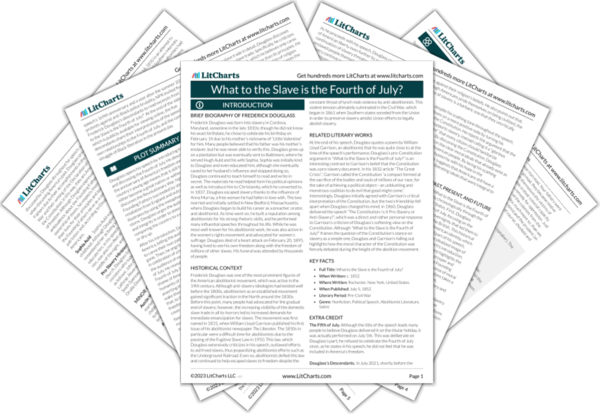Douglass returns to his rhetorical technique of moving from the general to the specific. In this instance, he does so by naming specific prominent ministers who support slavery in order to highlight just how endemic pro-slavery sentiment is in the American church. While Douglass also takes a more positive tone in naming abolitionist ministers, the fact that this list is much shorter and described as “exceptions” further emphasizes the bleak state of American Christianity.
